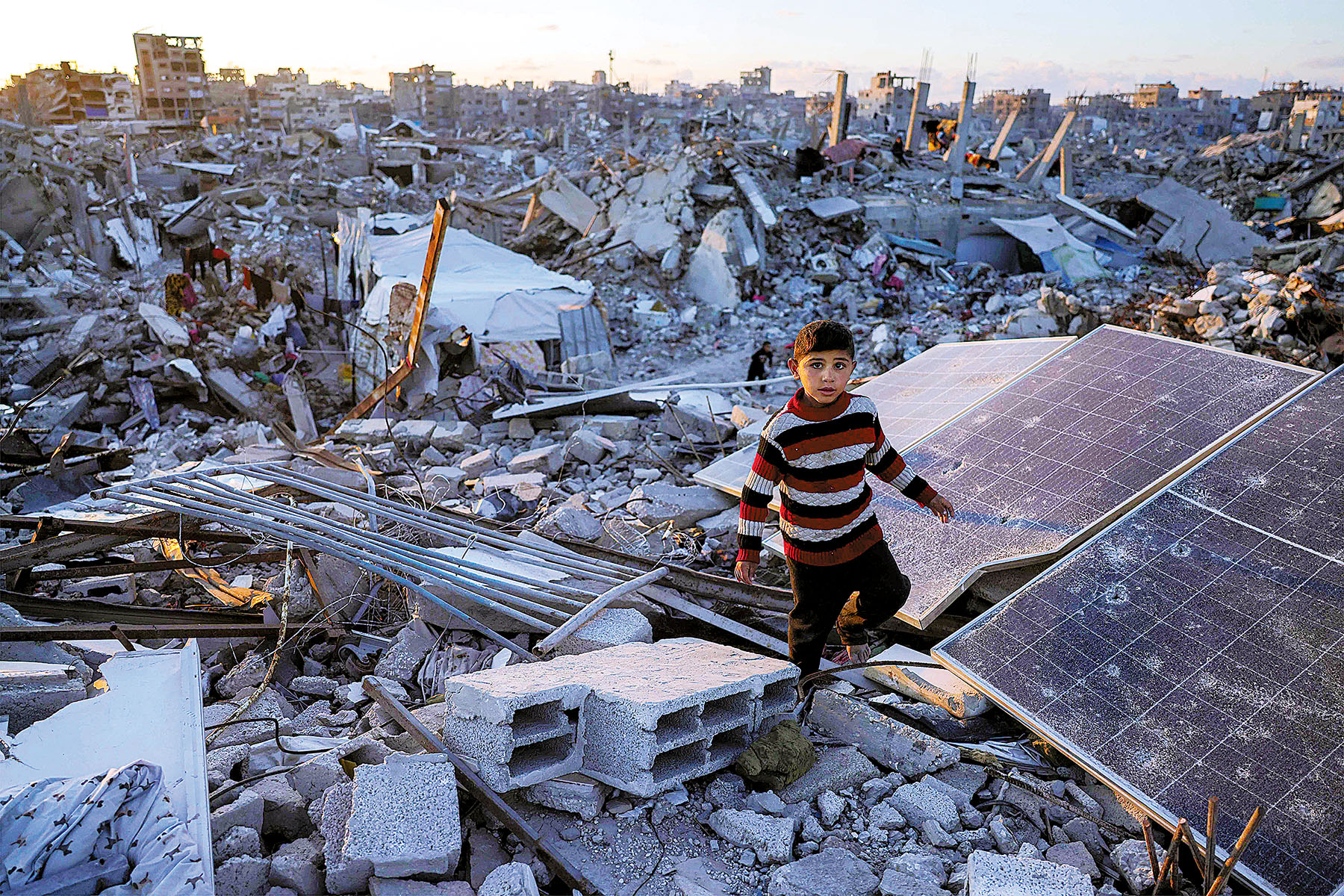Palestinians face humanitarian crisis as Israel, Hamas truce talks in limbo

Nearly 70 percent of Gaza is now under Israeli-issued displacement orders or within a “no-go” zone, leaving Palestinians in dire straits as Tel Aviv and Hamas remain locked in a struggle to reach a deal amid incessant bombings and starvation.
With no tangible progress and continuing differences, civilians continue to bear the brunt of the fighting. United Nations’ spokesman Stephane Dujarric said the humanitarian crisis is likely to be the worst since the conflict broke out on Oct 7, 2023, with the death toll nearing 51,000, as of April 15, and lifesaving supplies dwindling.
Gaza health authorities also said last week that around 60,000 children were facing life-threatening malnutrition owing to the continued closure of border crossings by Israel, preventing the entry of food, humanitarian assistance, and medical supplies.
The humanitarian situation in Gaza is now likely the worst it has been in the 18 months since the outbreak of hostilities, the UN relief coordination office, OCHA, reported on April 14.
Belal Alakhras, a political analyst and researcher at the University of Malaya in Kuala Lumpur, told China Daily that Israeli authorities have “weaponized essential human needs as instruments of collective pressure and genocide in Gaza”.
This Israeli approach, he said, appears designed to achieve what military operations alone could not accomplish over the past 18 months: population displacement and military settlement over Palestinian movements.
“Basic necessities are being leveraged as bargaining chips against Hamas and other Palestinian factions, yet this strategy has produced not tactical success but rather an unprecedented humanitarian catastrophe,” said Alakhras.
Israeli Prime Minister Benjamin Netanyahu said on April 2 that the Israel Defense Forces were “seizing territory, striking terrorists and destroying the infrastructure”.
But the UN High Commissioner for Human Rights said on April 11 that the increasing issuance by Israeli forces of “evacuation orders” — which are, in effect, displacement orders — has resulted in the forcible transfer of Palestinians in Gaza with little to no access to services, including water, food and shelter.
Since March 18, Israel has issued 21 “evacuation orders”, according to the Office of the High Commissioner for Human Rights, or OHCHR.
OHCHR spokeswoman Ravina Shamdasani said the nature and scope of the evacuation orders raised serious concerns that Israel intends to permanently remove the civilian population from these areas in order to create a so-called buffer zone.
“Permanently displacing the civilian population within occupied territory amounts to forcible transfer, which is a grave breach of the Fourth Geneva Convention and a crime against humanity,” said Shamdasani.
Alakhras said Israeli policy appears “emboldened by extensive US support”, including substantial weapons transfers.
In the latest development, Palestinian militant group Hamas said it was reviewing a new ceasefire proposal delivered by Egypt and Qatar from Israel. It also rejected demands to disarm, unless it received Israeli guarantees of a serious prisoner-hostage swap and a permanent end to the conflict.
The new proposal reportedly included Hamas laying down its weapons and a 45-day temporary ceasefire in exchange for Hamas releasing half of the Israeli hostages.
But Khalil al-Hayya, a senior Hamas official, reportedly expressed surprise at the inclusion of a clause related to the group’s disarmament. He said disarmament was “not on the table” and that any deal must begin with a “cessation of Israeli aggression and the forces’ withdrawal from the Gaza Strip”.
Elsewhere, on April 14, King Abdullah II of Jordan and visiting Indonesian President Prabowo Subianto condemned Israeli violations against the Al-Aqsa Mosque in Jerusalem and attempts to divide it both “temporally and spatially,” according to a Jordanian statement.
About 700 Israeli settlers also stormed the Al-Aqsa Mosque in groups from the Mughrabi Gate, performing Talmudic rituals and conducting provocative tours of its courtyards on the third day of the Jewish Passover holiday, Al Jazeera reported on April 15.
jan@chinadailyapac.com


